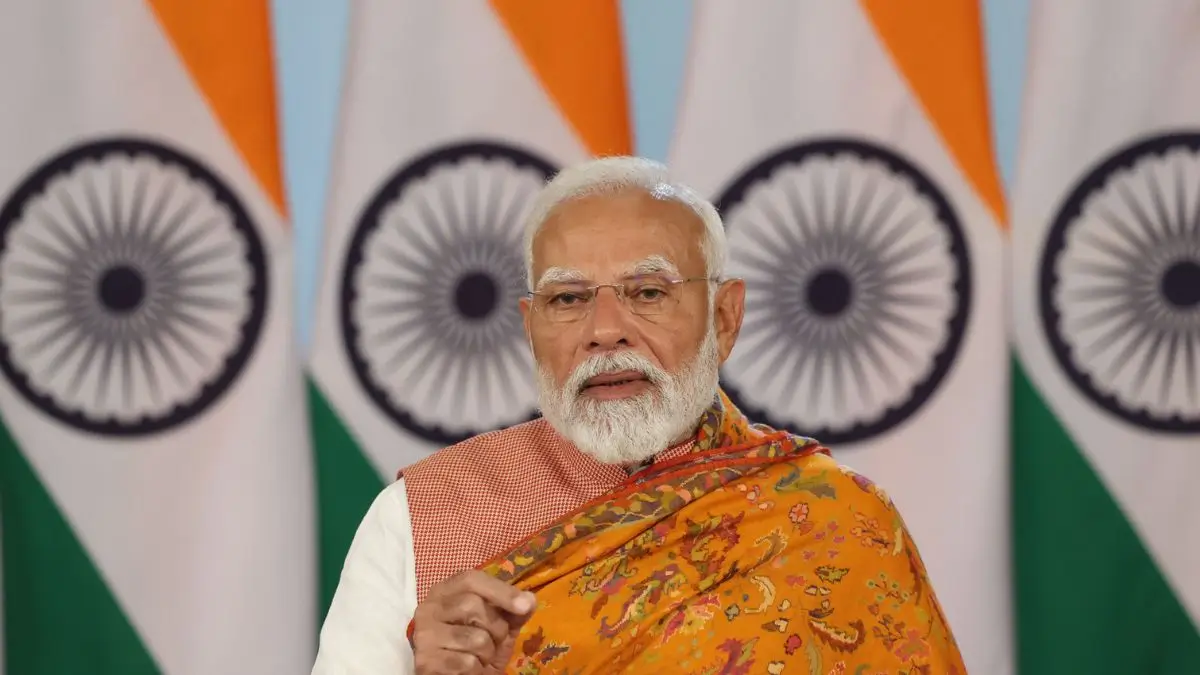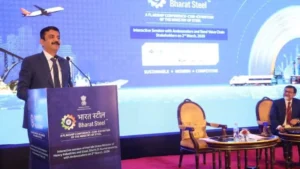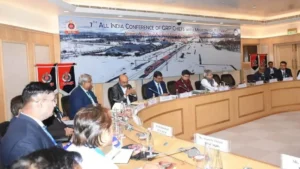Prime Minister Narendra Modi delivered a video message at the SAMVAD programme in Thailand, emphasizing India’s deep cultural ties with Thailand and the broader Asian region. He recalled the origins of SAMVAD in discussions with former Japanese PM Shinzo Abe in 2015 and highlighted its role in fostering debate and understanding across nations. His speech covered themes such as shared Asian heritage, conflict avoidance, environmental harmony, and the teachings of Bhagwan Buddha as a guide for a peaceful and prosperous future.
Key Takeaways from PM Modi’s Address
SAMVAD’s Origin and Significance
- The idea of SAMVAD emerged from discussions between PM Modi and Japan’s former PM Shinzo Abe in 2015.
- It has since been held in multiple countries, promoting dialogue, debate, and cultural understanding.
- The 2025 edition is hosted in Thailand, a nation rich in cultural and historical heritage.
India-Thailand Relations
- India and Thailand share a historical relationship spanning over 2,000 years.
- Common traditions include the Ramayana (Ramakien in Thailand) and deep reverence for Bhagwan Buddha.
- In 2023, India sent holy relics of Bhagwan Buddha to Thailand, attracting millions of devotees.
- India’s ‘Act East’ and Thailand’s ‘Act West’ policies complement each other in driving regional cooperation.
Asia’s Role in Shaping the Future
- The “Asian Century” is not just about economic growth but also about social and spiritual values.
- Bhagwan Buddha’s teachings can guide humanity toward peace, harmony, and sustainable progress.
Conflict Avoidance and the Middle Path
- Conflict arises from rigid viewpoints and the inability to accept diverse perspectives.
- Bhagwan Buddha’s teachings and the Rig Veda advocate multiple perspectives on truth.
- Perceiving others as different creates distance, leading to discord. Recognizing shared human experiences fosters peace.
- Extreme views cause conflicts, environmental crises, and mental stress. The solution lies in moderation and the Middle Path.
Humanity’s Conflict with Nature and Environmental Conservation
- Today’s conflicts extend beyond human disputes to environmental degradation.
- Asian traditions—including Hinduism, Buddhism, and Shintoism—advocate living in harmony with nature.
- PM Modi cited Mahatma Gandhi’s idea of trusteeship, urging responsible resource utilization for future generations.
India’s Buddhist Heritage and Initiatives
- PM Modi highlighted his personal connection to Buddhist heritage, representing Vadnagar (an ancient Buddhist learning center) and Varanasi (Sarnath) in Parliament.
- The Indian government has undertaken several initiatives to promote Buddhist tourism and heritage:
- Buddhist Circuit Development: Infrastructure upgrades to connect key Buddhist sites.
- Buddha Purnima Express: A special train for Buddhist pilgrims.
- Kushinagar International Airport: Opened to facilitate international pilgrimages.
- Revival of Nalanda University: Once destroyed, now being restored as a center of learning.
- Recognition of Pali as a Classical Language: Ensuring the preservation of Buddhist literature.
- Gyan Bharatam Mission: Cataloging and digitizing ancient Buddhist manuscripts.
India’s Global Role in Promoting Buddhist Teachings
- Hosting major Buddhist summits
- Lumbini Projects
- Buddhist Text Preservation
Religious Harmony and the Role of SAMVAD
- The 2025 edition of SAMVAD features a Religious Roundtable with diverse spiritual leaders.
- PM Modi emphasized that religious dialogue can foster global harmony.
| Summary/Static | Details |
| Why in the news? | PM Modi’s Address at SAMVAD in Thailand: Key Highlights |
| SAMVAD Origins | Concept proposed by PM Modi & Shinzo Abe in 2015, fostering interfaith dialogue and cultural exchange. |
| India-Thailand Relations | 2,000+ years of cultural ties; Ramayana (Ramakien) and Buddhism as common bonds. |
| Asian Century Vision | Asia’s rise should focus on social and spiritual values, not just economic growth. |
| Conflict Avoidance | Inspired by Buddha’s teachings & Rig Veda; conflicts arise from rigid viewpoints. |
| Middle Path Approach | Avoiding extremes is key to resolving conflicts, environmental issues, and stress-related health concerns. |
| Environmental Harmony | Asian traditions promote living in sync with nature; Mahatma Gandhi’s trusteeship concept highlighted. |
| Buddhist Circuit Development | Infrastructure projects, including the Buddha Purnima Express and Kushinagar International Airport. |
| Revival of Nalanda University |
India’s efforts to restore its status as a global center of learning.
|
| Pali as a Classical Language |
Initiative to preserve ancient Buddhist texts.
|
| Gyan Bharatam Mission |
Cataloging & digitizing ancient Buddhist manuscripts.
|
| Global Buddhist Cooperation |
Hosting of Buddhist Summits; contribution to Lumbini projects and Buddhist text preservation.
|



 India to Host Bharat Steel Summit in New...
India to Host Bharat Steel Summit in New...
 7th All India Conference of GRP Chiefs C...
7th All India Conference of GRP Chiefs C...
 MoEFCC to Organise ‘Him-CONNECT’ at WSDS...
MoEFCC to Organise ‘Him-CONNECT’ at WSDS...








